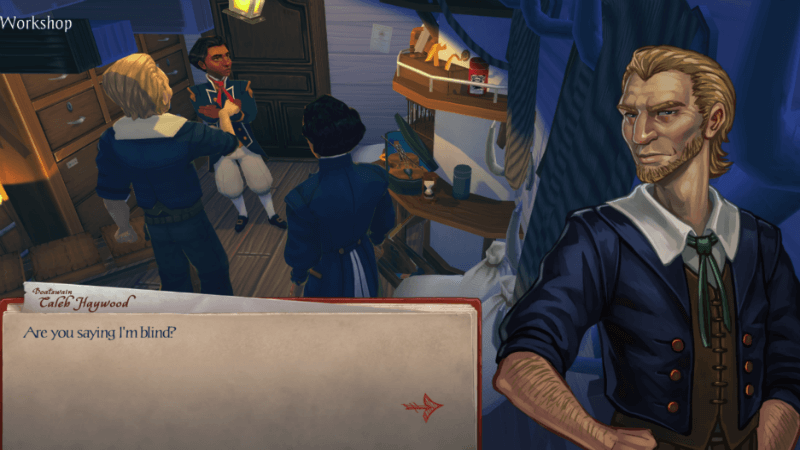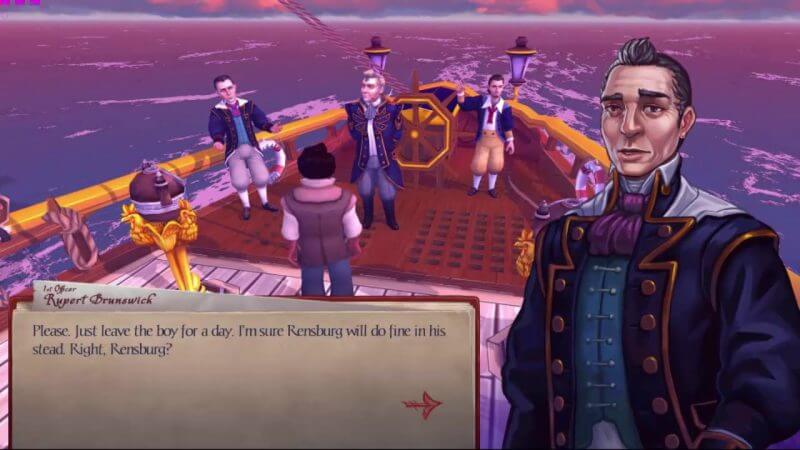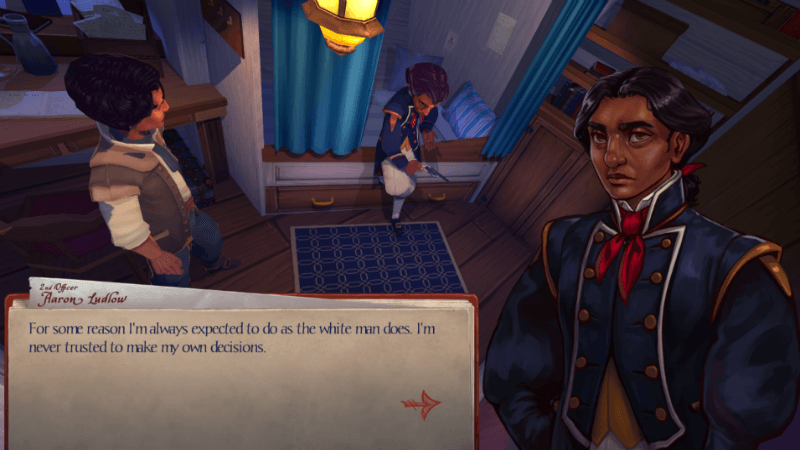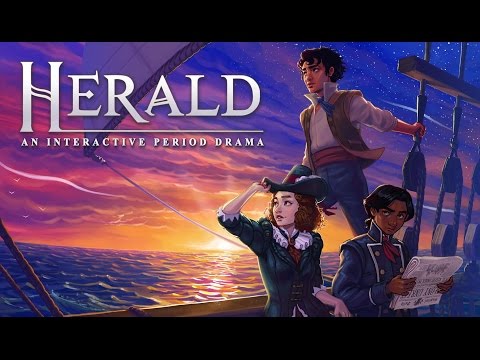Title: Herald: An Interactive Period Drama – Book I & II
Available On: PlayStation 4,
Developer: Wispfire
Genre: Adventure, Point and Click, Indie
Official Site: Herald: An Interactive Period Drama – Book I & II
Release Date: February 22, 2017
Where To Buy It: Steam, PlayStation Store, Microsoft Store, Local Retailers ($9.99)
Point and click adventures have always been a hit or miss genre for gaming, as many developers use it as a shortcut for a quick buck without having to make a game featuring rigorous gameplay. While it starts out a bit rocky Herald: An Interactive Period Drama – Book I & II shows that there are plenty of worthwhile games in the genre that are worth playing.
I’ll admit that the idea of a period drama, while interesting, wasn’t entirely the most enthralling idea for the basis of a video game. With most games centering around huge cinematic action sequences, killing zombies and loads of blood and gore, an adventure set in an alternative 19th century aboard a ship didn’t really compare at first. But eventually, Herald: An Interactive Period Drama’s risky choice of setting and story help set itself apart from other games.
I’ve always enjoyed point and click, story oriented games, so I was more than happy to play Herald: An Interactive Period Drama. The art style – with every character having short bodies and big heads – alongside the dialogue, did take a bit of getting used to, but once I did it faded into the background. By the end of both books, there really are some beautifully colored shots, from a boat on the foreground of the open sea to a panning shot of The Rani’s sprawling garden.
Very little context is given about the main character Devan Rensburg, a young man of mixed heritage who became a steward on board of the HLV Herald in search of his birth country, but I ended up enjoyed that aspect later on. Herald: An Interactive Period Drama’s branching narrative really did make it feel like Rensburg was tailored to the choices I made, unlike a lot of points and click games that simply converge back to the main story or character arc by converging every decision at the end.
While most of the first book is spent getting to know the way around the ship and it’s crew, it drags on for the first hour or so and is a bit difficult to get through, especially since direction is literally tied to pointing and clicking with no directional keys. After that though, the narrative starts to unfold and the other characters start to display their unique personalities.
Authority figures like Senator Morton and Captain Hendriksz contrast well with subordinate figures Rensburg runs into like Officer Ludlow and Navigator Brunswick, reflecting just how people in their ranks likely would treat their subordinates in the 19th century. Other interesting supporting characters like Boatswain Haywood, Chef Undra, and Daniel Barros add a varied mix of personality, with stories and attitudes ranging from snarky to jolly to even tragic.
The dialogue and actual inflection by the voice actors can be a bit wonky at times, but like I said before they are eventually forgotten because of the narrative they push forward. It really did end up surprising me just how much I enjoyed the narrative of Herald: An Interactive Period Drama given the time period and subject matter it was set around.
Wispfire does a marvelous job of introducing interesting elements to the period piece, without having to resort to fantasy oriented twist and turns. Recently, The Witcher’s author Andrzej Sapkowski stated that video games tend to disparage the room for depth and culture regarding their narratives. Herald: An Interactive Period Drama is a perfect example of a game that contradicts that point, opening up doors not only to a unique literature inspired 19th-century story but to social and political issues surrounding colonization.
On top of that, I actually began to enjoy the simple gameplay elements in the game as well. Like I said before, the branching path narrative structure is hard to do without feeling like it converges back to one place, but (so far) Herald: An Interactive Period Drama has managed to do so. Every choice, whether it is saving a crew member from jumping through dialogue or selecting the right ingredients for a meal feels important. The illusion of choice has been a huge problem in the narrative driven genre for a while now, so I hope the following book keep up the consistency of the first two in that regard.
It’s interesting just how much like a book Herald: An Interactive Period Drama feels, not only in its narrative-driven structure, but it’s pacing. Reading is hard for a lot of people, myself included because of the exposition kind of feels boring. But once you peel the layers of the onion away from the point and click adventure it becomes one of the more interesting and unique tales I’ve played in recent memory.
VERDICT: While I was hesitant, and somewhat bored, at the beginning of Herald: An Interactive Period Drama, I’m glad I pushed through. I applaud Wispfire for its bold narrative choice and setting and look forward to playing the next books upon their release, and highly recommend any literature oriented gamers give it a try.
[review]












